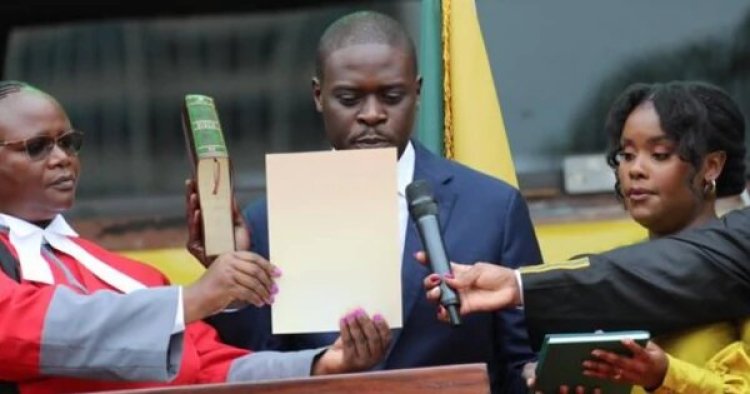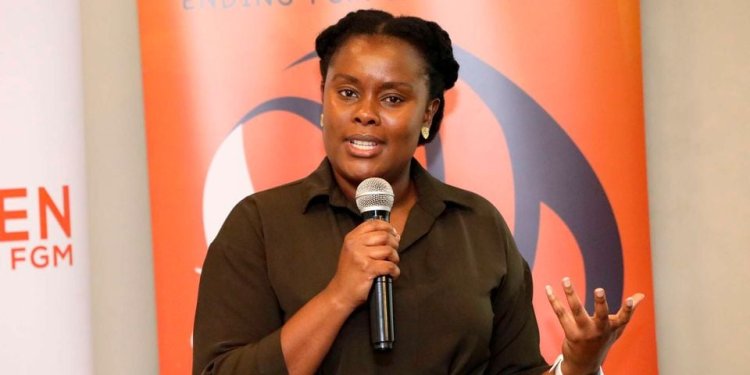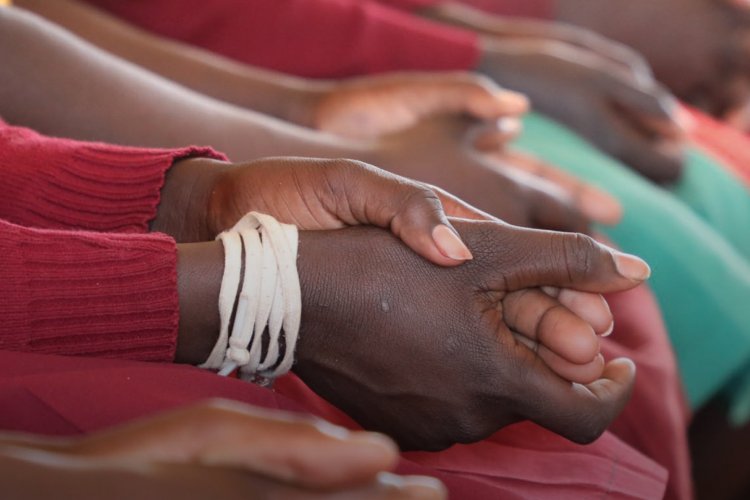Sakaja's Wife Reveals How Mother Saved Her From FGM
Beatrice had recalled learning of the ordeal when her high school teacher gave her a class assignment to do research on...

Nairobi governor Johnson Sakaja's wife, Beatrice Sakaja, uncovered little-known details of her escape from undergoing the dreaded female genital mutilation (FGM) while she was a young girl.
The county first lady was speaking during the launch of a pilot programme to address FGM among the Somali community members in Eastleigh dubbed Hoiyo Haigoynin – which loosely translates to “Mum don’t cut me”, held in a Nairobi hotel on Wednesday, February 8.
Beatrice had recalled learning of the ordeal when her high school teacher gave her a class assignment to do research on harmful traditional practices in their respective communities.
When she got home, she sought assistance from her mother who revealed to her how female circumcision practised in her Taita community was considered a harmful practice.

Nairobi County First Lady Beatrice Sakaja speaks at the launch of the 'Hooyo Haigoynin' a project aimed at educating the Somali community in Eastleigh, Nairobi, on the negative impacts of FGM, at Best Western Meridian Hotel, Nairobi on February 2, 2023. /DAILY NATION
“My mother told me FGM was one of the harmful cultural practices in my community. She confessed that I had actually escaped the cut by a whisker after she stood firm against my grandmother’s push to have me circumcised,” she stated.
She expressed regret that most of her relatives including her aunties have been circumcised and showered appreciation towards her mother for safeguarding her against a cruel cultural practice which had no meaning.
“Women must stop cutting girls and fellow women. My mother went against her mother-in-law and ended up protecting me from being cut,” she added.
She further underscored the need of involving men and boys in the fight against FGM, noting that they hold immense influence in changing culture and perception in their respective communities.
Beatrice further disclosed that her mother received support from her father and her father-in-law when she saved her from undergoing the cut.
“Time is ripe for men to talk to their sons and brothers on why they must fight FGM. My mother managed to shield me from the cut because she had the support of my father and her father-in-law, which underscores the influence that men wield on such matters,” the First Lady added.
Beatrice hailed the “Mum don’t cut me” project, terming it an important initiative that all must support to protect women and girls in Nairobi from the cut.
The pilot programme spearheaded by Zinduka-Kenya in conjunction with Men End FGM Foundation will be undertaken for a period of 12 months. It targets the Somali community, which has more than 90 per cent FGM prevalence.
The latest Kenya Demographic Health Survey, 2022, documented that the prevalence rate of FGM reduced from 21 per cent in 2014 to 15 per cent in 2022.
According to UNICEF, 4 million Kenyan girls and women have undergone FGM, which amounts to 21 per cent of Kenyan women and girls aged 15 to 49 having undergone the process. Cutting is performed at different ages in Kenya, and UNICEF notes that some ethnic groups practice it after age 15; in other communities, however, that can be as early as 9 or 10.
The risk for FGM isn’t uniform across Kenya, though it tends to be higher in rural areas, among lower-income families with less education, or among certain ethnic groups.
Despite being outlawed in Kenya in 2011, female genital mutilation (FGM) remains a pressing issue in the country, largely due to traditional beliefs and practices.
Also known as female circumcision (and generally used as a term to cover any practices that inflict damage to the female genitalia for non-medical purposes), cases of FGM in Kenya now come with a minimum three-year prison sentence, a fine of approximately Ksh250,200 ($2,000), or both.

Two women holding hands. /UNICEF

 admin
admin 




